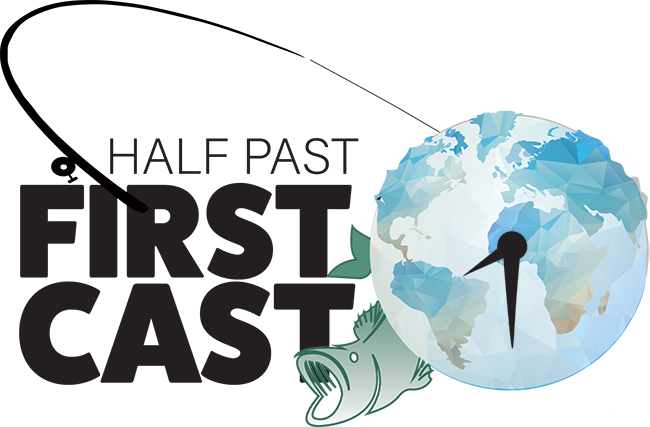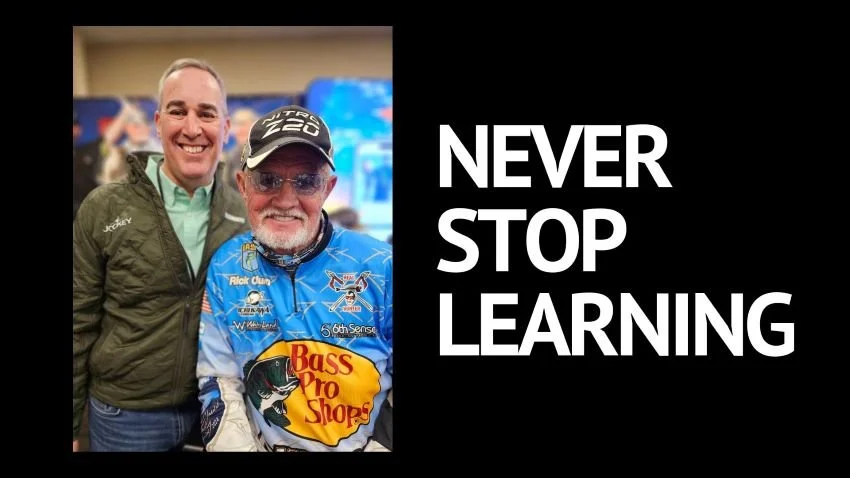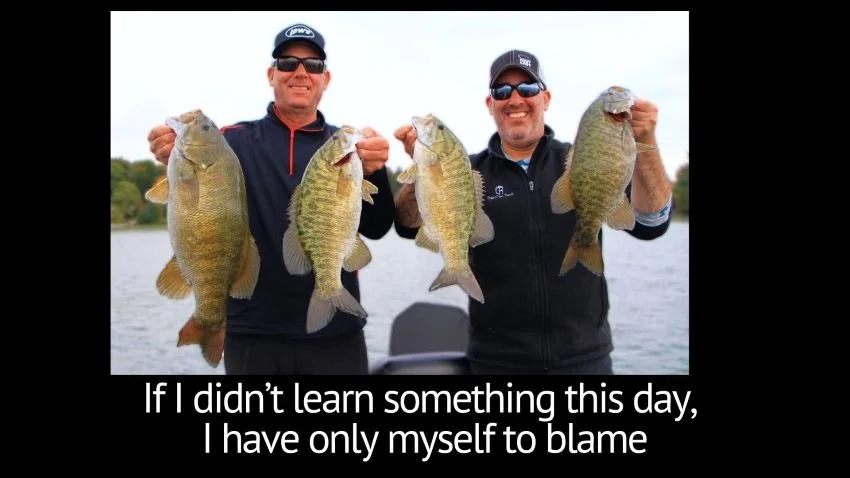Don’t Be the Best Angler in the Boat
I spend a lot of time feeling like I’m a shitty bass angler.
It’s not because I am. Indeed, in the grand scheme of things I’m probably decidedly above average. I’ve chased bass all over the country (and internationally), I stay up on the latest trends and tackle, and I spend a reasonable amount of time on the water.
Nevertheless, at multiple points during any given year I feel like I don’t know what I’m doing. Typically, but not always, it’s when I’m fishing with someone who’s a world class angler. I have been fortunate in my writing career to share the boat with the likes of Kevin VanDam, Brandon Palaniuk, Rick Clunn and other masters of the sport. I’ve learned a lot of lessons from each of them, but the most salient one is that if you’re always the one catching the most and/or the biggest fish, then you’re probably not getting any better.
Let me reiterate that: If you’re always or nearly always the best angler in the boat, it may be an ego boost, but it’s not a learning opportunity. You need to get your ass kicked once in a while and learn from it.
When I attend media gatherings, or hang out with multiple professional anglers at the same time, the choice moments are the ones when they bounce ideas about tackle, tactics or strategies back and forth. That’s when I shut up and listen, and when I gain new respect for accomplished anglers who aren’t afraid to learn. Indeed, that’s a hallmark of the greats. During a recent trip to Lake Hartwell, I paid attention as three past B.A.S.S. winners shared notes on specific hooks and lures and electronics settings. They weren’t afraid to be humble because they understood the long term benefits – and so should all of the rest of us.
How Can You Fish With Better Anglers?
Of course, in order to learn from better bass anglers, you need to know some better bass anglers – and they have to be willing to take you fishing. Here are three ways to accomplish that goal:
Join a Bass Club – In 1995 I joined a club with a number of really good anglers, but more important was the fact that we drew new partners for each tournament during the year. That meant that a novice like me got to fish with a number of different people on very different waters. Some of them were superior sticks and others were just OK, but I got to see a number of different approaches and learn which ones worked best.
Enter a Pro-Am – I fished a number of Bassmaster, FLW and EverStart tournaments as a co-angler between 1997 and 2007 and that put me in the boat on prime waters, occasionally with world-class talents. That opportunity may not be available any longer at the tour level, but it is on some AA and AAA circuits. Don’t expect them to answer a lot of questions during competition, but I always found it valuable to find a practice partner. They often want someone to split expenses and you can see how a skilled angler breaks down waters and conditions.
Hire a Guide – If there’s a particular technique or style of fishing that you want to learn, or even a body of water, find a guide for whom that’s a specialty. No, you’re NOT looking for waypoints, but rather for general info and instruction, and since it’s on your dime, establish in advance what your goals are for the day. Some guides are “catching” guides and some are “teaching” guides and some are both, so while it’s always fun to jack on some big’uns, don’t get so focused on catching that you fail to learn.
Information-Gathering Strategies
Your goal during any and all information-gathering sessions should be to get the most bang for your buck – get your source talking, keep them on track, and try not to make them think you’re up to something no-good. Here’s how I’ve learned to deal with it:
First, listen more than you talk – If they’re better than you, you likely can’t learn anything when your own pie hole is running. You don’t need to impress them with your knowledge, just be humble and keep your ears open.
Second, ask questions (but not too many) – Most anglers who are willing to share are flattered if you ask them to explain something. Ask simple questions that flatter them and show that you are respectful and observant. Just don’t jibber jabber all day. I know that’s a major turn off for just about everybody and eventually you’ll get tuned out.
Third, keep secrets secret – If someone shares something with you in confidence – a particular bait, tactic or tweak – keep it locked up in your memory bank. Not only is it the right thing to do, but the fishing community is surprisingly small and if you get a reputation as a blabbermouth people will start being extra tight-lipped around you.
Fourth, observe – I know that when I’m in the boat it’s difficult for me to stop fishing, but when I’m with someone who is very talented and/or kicking my butt, I make a point of stopping to watch what they’re doing. Maybe it’s something subtle that they can’t even describe, but you can pick it up and improve your catch rate substantially.
Finally, someone doesn’t have to be a professional angler or guide, or even consistently better than you, in order to teach you something. I’ve learned a lot from rank beginners in my boat who appear to be doing something the “wrong way” but don’t know what they don’t know and end up figuring something out inadvertently. My early years as a club angler, fishing with all different levels of talent, taught me that everyone can help you become a better angler in some way – if you don’t resist what they have to offer.







